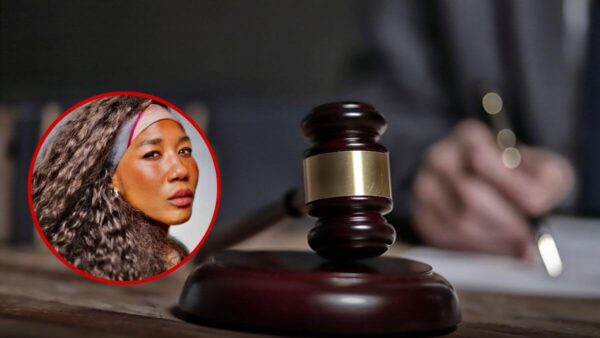A Mississippi judge reversed his own ruling a week after finding a prominent civil rights lawyer guilty of multiple criminal charges in an overturned verdict that drew comparisons to injustices of the Jim Crow South.
Attorney Jill Collen Jefferson, president of the civil rights law group JULIAN, also works as a professor at Harvard Law School while serving as a crusader for racial justice across the country.
However, her activism got her into hot water in Holmes County, Mississippi, where she was arrested in June 2023 after she filmed a traffic stop by the Lexington Police Department, whose officers had been accused of rampant misconduct, including violence, racial profiling, harassment, witness intimidation, and corruption in one of the nation’s poorest counties.

As a result, Jefferson was jailed for several days just as Justice Department officials arrived in Holmes County to speak to the community about their experiences with the local police force.
Last week, Jefferson went on trial on four misdemeanor charges related to her June arrest, including unlawful use of a mobile phone while driving, obstruction of a public roadway, failure to comply, and resisting arrest.
Her legal team presented evidence that included Jefferson’s testimony and video recordings that refuted the police version of events, but Judge Marcus Fisher of the Holmes County Justice Court found Jefferson guilty on three counts while clearing her on the charge of unlawful use of a mobile phone.
The judge issued a fine as well as a scathing rebuke of Jefferson’s actions, which defense attorney Michael Carr described as sounding like “a pre-prepared script.”
As Jefferson’s lawyer prepared her appeal, he noticed irregularities in Fisher’s ruling and noted that, after a week, the judge had also failed to submit his decision to the Circuit Court for reconsideration.
At that point, Carr requested the official documentation of Jefferson’s conviction from the court but was stunned when he received an entirely different order from Fisher that cleared Jefferson on all charges.
“In 18 years of defense practice, I have never seen this happen – a judge reversing himself within days after an oral pronouncement of guilt at court and assessing fees and fines at that moment,” Carr said while noting that Fisher’s new order contained multiple spelling and punctuation errors.
Jefferson said she noticed that Fisher issued the bench ruling in her case from a verdict sheet, “saying the judge couldn’t pronounce some of the words.”
During her trial, Jefferson discovered that some charges were added much later by the arresting officers and asserted that her lawyer did not receive key evidence, such as body camera footage of the arrest, until the night before the trial.
Jefferson also claimed that the arresting officer, Scott Walters, bragged to his friends about putting her in jail and sent her a friend request on Facebook after she was found guilty.
Jefferson described her ordeal as “emblematic of what we’re organizing against” and asserted that the huge public uproar in her case helped get the charges dismissed.
“It’s a personal victory for me, but in terms of this community, they’re not going to do that for any of the innocent Black people that they’ve put canned verdicts against,” Jefferson told MPB News, “They’re not going to reexamine those cases and give them a second chance. They only did that because I’m an attorney and know my rights and we kicked up a stink about all of this.”


